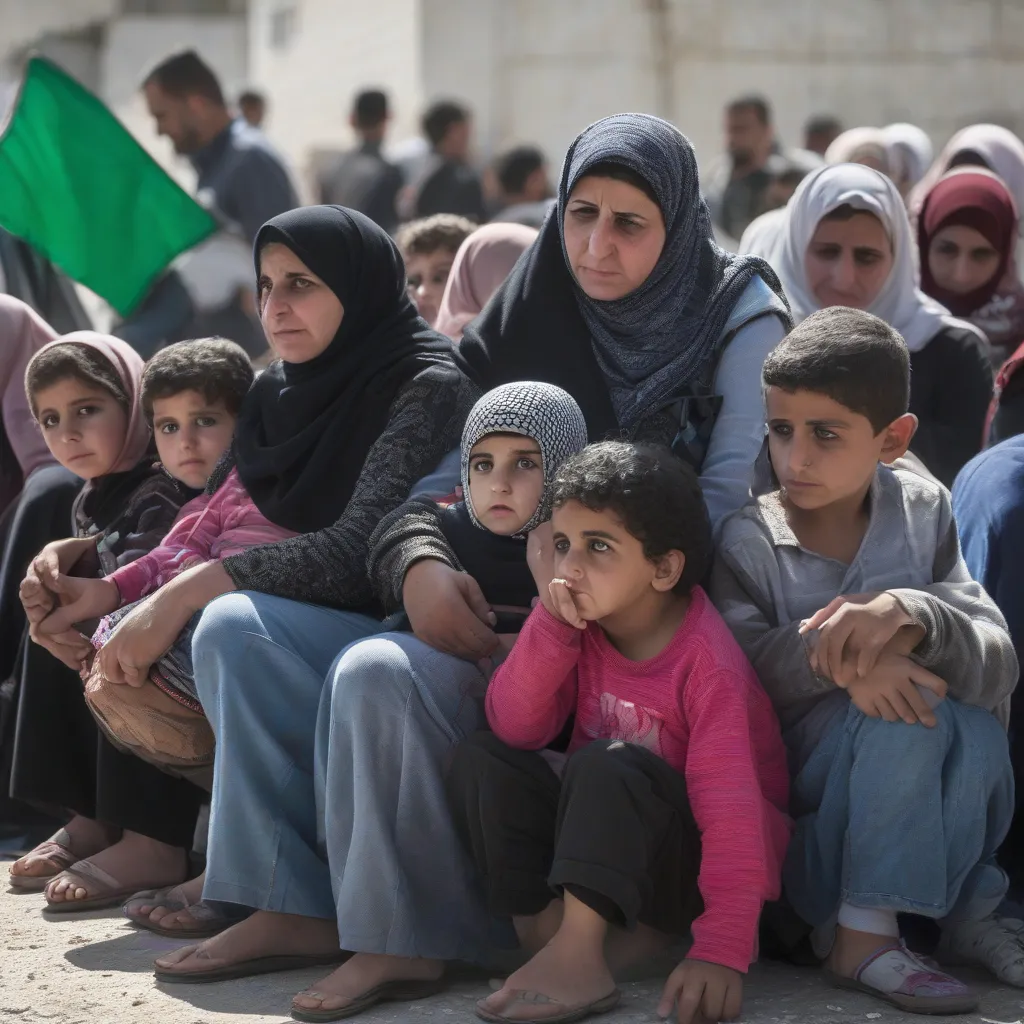“To travel is to live,” said Hans Christian Andersen. But what happens when the freedom to explore the world is restricted? This question weighs heavily on the Palestinian people, whose movement is often dictated by complex geopolitical circumstances.
The Reality of Palestinian Travel
While the question “Are Palestinians Free To Travel?” seems straightforward, the answer is anything but. The reality is nuanced and depends heavily on individual circumstances, residency status, and even the political climate at any given time.
Different Rules for Different Palestinians
It’s crucial to understand that there isn’t a single “Palestinian passport.” Palestinians may hold passports issued by different entities:
- Palestinian Authority Passports: These passports are issued by the Palestinian Authority. However, they are not widely recognized for international travel and often require additional visas and permits, even for countries that recognize the State of Palestine.
- Israeli-Issued Documents: Palestinians living in East Jerusalem may hold Israeli residency cards, granting them more travel freedom than those with PA-issued documents. However, their status remains complex and can be subject to change.
- Jordanian Passports: Palestinians residing in Jordan often hold Jordanian passports.
Restrictions and Checkpoints: A Daily Reality
The West Bank, where many Palestinians reside, is dotted with checkpoints controlled by Israeli authorities. These checkpoints can significantly impact the ability of Palestinians to move freely, even within the West Bank itself. Traveling to Jerusalem, a city of deep cultural and religious significance for Palestinians, often requires special permits that are difficult to obtain.
 Palestinian Family at Checkpoint
Palestinian Family at Checkpoint
Gaza: An Open-Air Prison?
For the approximately 2 million Palestinians living in the Gaza Strip, travel restrictions are even more severe. Described by some as an “open-air prison,” Gaza’s borders are tightly controlled, making it incredibly challenging for residents to leave for any reason – be it work, education, or visiting family.
The Impact on Daily Life and Dreams
These restrictions have a profound impact on the lives of Palestinians. Imagine not being able to visit a sick relative in another city without undergoing a lengthy and uncertain permit process. Imagine being a talented student unable to accept a scholarship abroad because of travel restrictions. These are the realities faced by many Palestinians.
Finding Hope and Resilience: Stories of Travel
Despite these challenges, Palestinians demonstrate remarkable resilience. Stories of Palestinians achieving success in various fields, from academia to the arts, despite the hurdles they face, are a testament to their spirit.
Dr. Amal K., a Palestinian physician who managed to travel abroad for specialized training, shared her story with travelcar.edu.vn. “It was incredibly difficult to obtain the necessary documents,” she said, “But the desire to learn and serve my community kept me going. Every Palestinian has a story of resilience.”
 Palestinian Student Celebrating Graduation
Palestinian Student Celebrating Graduation
FAQs About Palestinian Travel
- Can Palestinians travel to other Arab countries? This varies depending on the specific Arab country and the type of travel document the Palestinian individual holds.
- Are there any organizations that assist Palestinians with travel issues? Yes, several NGOs and international organizations provide legal aid and support to Palestinians facing travel restrictions.
- Do travel restrictions apply to Palestinian citizens of Israel? Palestinian citizens of Israel generally have more freedom of movement than those living in the West Bank or Gaza. However, they can still face discrimination and profiling.
Embracing the Spirit of Travel
The restrictions placed upon Palestinian movement are a stark reminder of the human cost of conflict. However, the inherent human desire to explore, connect, and experience new cultures cannot be contained by borders. As we learn about these challenges, let’s also celebrate the stories of resilience and hope that emerge from them.
For more insights into travel and cultural experiences around the world, explore the diverse content on TRAVELCAR.edu.vn.
